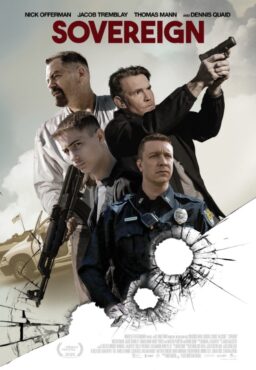Q. I’ve seen commercials for the movies “Desperado” and “Lord of Illusions” quoting Quentin Tarantino as he praises the movies. Has it always been the practice to use popular filmmakers this way, or is it just because it’s Quentin Tarantino? — Sean Goodrich, Trophy Club, Texas
A. It’s just because it’s Quentin Tarantino. In his unflagging attempt to be the den mother for a new generation of filmmakers, he finds he cannot make cameo appearances in every one of their movies, much as he would like to, so he writes blurbs for their ads. In the case of “Desperado” he also appeared in the movie, where he was shot dead in the middle of a sentence. Only cynics would say there was no other possible time to shoot him.
Q. I was watching Black Entertainment Television recently and saw the commercial for “Dangerous Minds.” But whereas the usual version features a white male voice-over, some sound bites from Michelle Pfeiffer and a few clips, this BET version treated us to a 60-second music video featuring the rapper who performs the song used on both versions of the advertisement. As you observed in your review of “Dangerous Minds,” the rap music LouAnne Johnson used as a classroom tool in real life was replaced in the movie with the lyrics of Bob Dylan, which resonate with white audiences but would be about as meaningful to black kids as the music of Mel Torme. It appears, however, that Hollywood Pictures is indeed willing to appropriate rap music — provided it is narrowcast to a audience that may be more likely to attend a movie with a rap soundtrack. — Aaron Barnhart, Evanston, Ill.
A. LouAnne Johnson’s original book described how she used rap music to get difficult students involved. The movie replaced rap with Bob Dylan. To represent “Dangerous Minds” to young black audiences as containing a lot of rap is therefore doubly ironic. But what do you have against a great jazz singer like Mel Torme?
Q. We have two Blockbuster Video stores. I just called both stores, and they said they would not carry the letterboxed version of “Pulp Fiction” for rent or purchase. This really upsets me. I love “Pulp Fiction,” and the thought of watching the movie cropped gives me chills. Do you think there’s any way I could get a copy? — Andre Mallette, Wilmington, N.C.
A. I am shocked — shocked! — to hear this news. Admittedly, Blockbuster is not a fan of letterboxing, believing it “confuses” customers. But as reported last week, I was assured by Blockbuster president Gerry Geddis that all Blockbuster stores would carry the letterboxed version of “Pulp Fiction” on VHS tape. I sure hope the store managers in Wilmington don’t get in trouble for violating company policy!
Q. I read that Jeanne Tripplehorn requested a body double to replace her in certain scenes in the movie “Waterworld.” I’ve wondered for a long time why they don’t include the names of the body doubles in the end credits. Surely if they acknowledge people like caterers, first aid nurses, truck drivers, etc., they should recognize the contribution of someone who actually appears on the screen. — Gary Currie, Montreal, Canada
A. In an industry where even “trout wranglers” get mentioned in the end credits, the professional body double is the last anonymous artist. However, it could get tricky if body parts were supplied by more than one double; the credits would read like the contents of a package of chicken parts.











